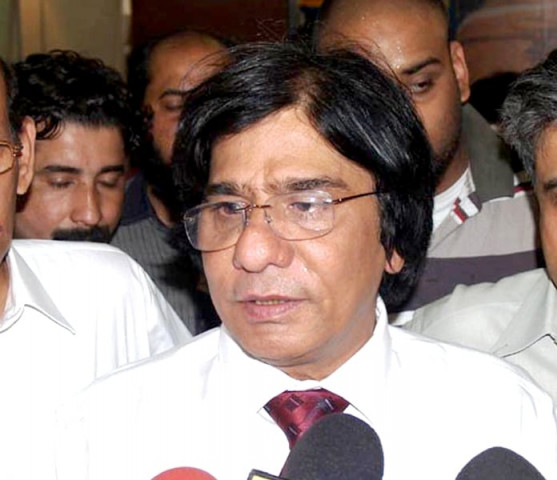Fire tragedy: Is a resignation enough?
If convention of resigning was to become binding today, most provinces would have to function without ministers.

The self-exonerating statement issued by the minister says that he found himself “helpless and with no authority to move against the people responsible for the deadly Karachi factory fire”. While it is a welcome break from the practice of not allowing the buck to stop anywhere and letting the citizens suffer without holding anyone responsible, one might still ask: why resign after the fact; why not walk out after the first feeling of ‘helplessness’?
Mr Siddiqi put his finger on the real cause of the tragedy: “Two key institutions — civil defence and the labour department — which are responsible for safety measures and labour rights are not under my authority and I was compelled to see people dying in the fire”. The two departments that his ministry was in a way subordinated to are the most poorly handled institutions in the country. Nowhere in Pakistan has the industries minister ever done anything to remove this roadblock. Mr Siddiqi, too, did nothing, but to his credit, he has resigned to put the nation on notice that all provinces need to sort out the decades-old bottleneck that haunts emergencies caused by accidents and fires.
Kudos are due to the tight hierarchy of the MQM, which allowed the minister to resign to initiate the honourable convention of resigning from the job if you cannot handle it. One must, however, focus on the ‘implications’ of the lesson for Sindh — where administration has wilted in the face of terror and crime — and in the rest of the country, where industrial accidents regularly lead to the same kind of murderous chaos.
Pakistan has descended into a penumbra of institutional decay in the past decade. Virtually no ministry and department functions normally. In fact, most of them are dysfunctional, studiously avoiding involvement in outreach activities in favour of ‘desk’ activity devoted to bureaucratic avoidance of responsibility — by pointing to duties distributed among numerous equally dysfunctional departments. If the convention of resigning from ministry was to become binding today, most of the provinces would have to function without ministers. In Punjab, the chief minister, who keeps a lot of departments under his command, will be in a quandary submitting to it.
There is ‘Third World’ realism to consider related to all functions of the state that touch the lives of the population: health, education, etc, that are best neglected in order to get the state to function in other areas like foreign policy, which moves popular passions but requires no physical outreach. Today, at the federal level, the most glaring example of failed jurisdiction is the Pakistan Railways whose minister has become a butt of jokes because he refuses to resign as the trains in the country come to a grinding halt. Outsiders might say that if resignations become the order of the day, who will govern Pakistan after most of the ministers and chief ministers have gone home?
One Third World solution is to privatise — fully or partially — the sectors you cannot handle. But some burdens cannot be lightened and the bureaucracy that handles building and labour standards simply cannot be privatised. In the past, chief ministers have often referred to the dysfunction of the labour department but did nothing to set it right. The bribery rampant in officials that handle building standards has been known for decades. In these circumstances, to accuse the industrialist of ducking regulations is not entirely fair: he has to bribe officials and make up for it by bypassing safety regulations. A balanced view will have to be taken. The industrial sector is already under pressure. Compensatory, revengeful action should not be visited on it before the needed administrative reform is complete.
Published in The Express Tribune, September 16th, 2012.















COMMENTS
Comments are moderated and generally will be posted if they are on-topic and not abusive.
For more information, please see our Comments FAQ